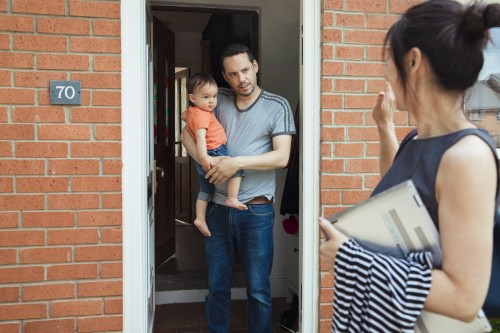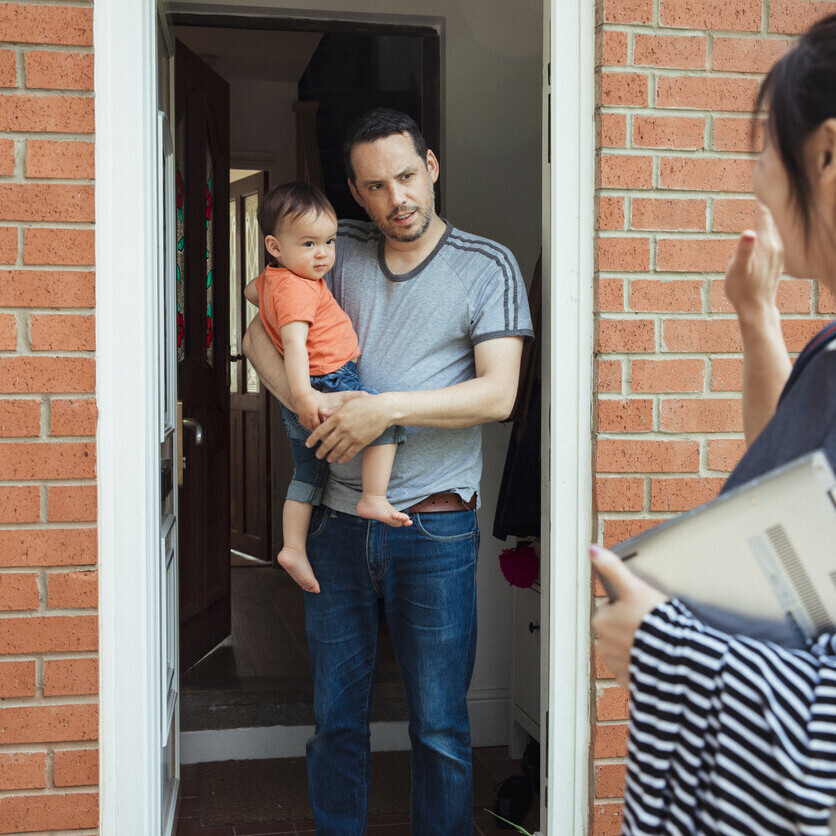
posted 18th December 2023

Separation is often distressing for children in the short term. But there are a number of ways you can ease the adjustment to avoid long term harm and even improve your relationship with your children.
1. Tell your children that you are separating promptly, even though you probably won’t have all the details worked out yet. Children instinctively know when something is up: in the absence of information they may draw incorrect conclusions, and blame themselves (“Mummy and Daddy are splitting up because I didn’t tidy my room”).
2. Tell the children with the other parent if at all possible, so that you can present a united front. Agree a simple, age-appropriate narrative in advance - that avoids blame, or saying whose decision it was - and stick to it. Use language to show this is coming from both of you (even if isn’t). Your children may have all sorts of feelings and questions: try to deal with them as best you can, keeping to the agreed narrative, and fill each other in if these conversations occur later when you are apart (you will probably have several conversations).
3. Give your children whatever reassurances you can that are true for you: that you both love them very much; that you are still their parents, and a family, even if you live apart; that they will still see lots of each of you; that you will try and keep them in the same school if you can etc. Emphasise that parental separation is a grown-up problem, and it is not their fault. When you don’t know what the arrangements will be yet, say so, but reassure them that you and the other parent are working it out (perhaps with the help of a mediator) and will let them know as soon as you can.
4. Realise that your children’s experience of separation is likely to be very different from yours (particularly if you envisage them moving between two homes) and that it wasn’t their decision. Acknowledging this can help.
5. Whatever their age, your children will need extra love and support, and space to feel all their feelings (some of which may be very difficult for you), at a time when you are going through your own emotional turmoil. Get your own support (family, friends, counsellor, babysitter etc.) so that you have energy to support your children. And let significant people in your children’s lives know (grandparents, school / nursery, friends etc.), so that they can support your children too. Ask school / nursery to communicate with each of you directly from now on (so one of you isn’t reliant on the other parent passing information on).
6. Remember that your children are half you, and half their other parent: they need to be free to love you both equally without feeling they need to look after you. Find positive things to say about the other parent wherever you can; and avoid saying anything negative in the children’s hearing. Ensure you both know enough about your children’s lives with each other that you can talk to your children in a joined up way (“Dad said you did really well in your spelling test on Friday”; “Mum said Granny has a new kitten”).
7. Strive to minimise conflict between you in front of the children (noting that children will pick up on the atmosphere even if it is behind closed doors): research shows that it is exposure to ongoing, unresolved conflict that causes most harm to children. As difficult as it is, try to work out rules between you about how you will communicate so as not to press one another’s buttons (or discuss this in mediation): some parents use a parenting app, or agree to only exchange pleasantries on the doorstep etc. Others find it helpful to wait a day before replying to (non-urgent) messages.
8. When working out arrangements for your children, remember to treat them as individuals with different needs, and try to factor those in as far as practical.
When you parent apart, you have less time with your children, and the time you have with them is just you and them without the other parent around. Whilst this takes some adjustment, it also gives you the opportunity to parent more intentionally than you might have done, to make that time really count. Each of you will probably need to step up in different ways, filling gaps that maybe the other parent filled: young people report that this can lead to better relationships with their parents than when their parents were together.
If you would like to discuss how mediation might help you agree arrangements for your children when you live apart, please get in touch.





